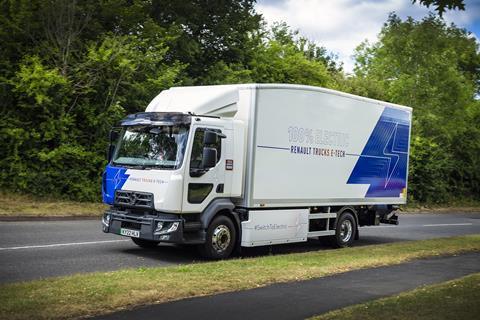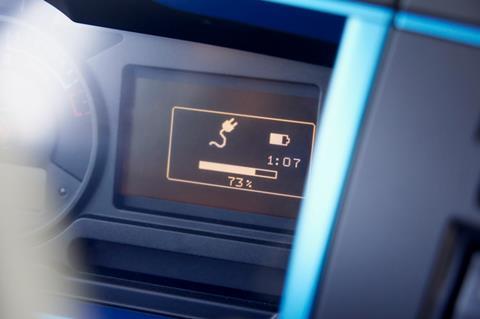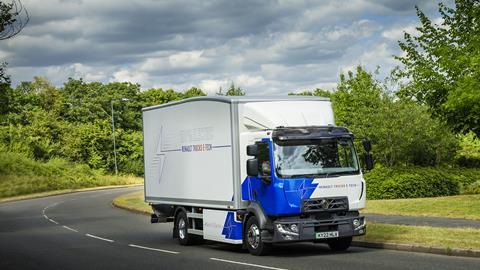A number of leading companies have begun their decarbonisation journey with Renault Trucks and while an electric vehicle brings many benefits, it cannot be used in the same way as a diesel model. The operators who have embraced electric so far have all shown a willingness to adapt their operations to make electric vehicles work for them and their customers.

Reviewing routes
Diesel vehicles are almost unlimited in their operations and flexibility. No electric vehicle can offer the same adaptability, so the fleet planner must consider the energy consumption of the vehicle, ensuring that it can complete the task or be recharged en-route in order to do so. Renault Trucks has worked with operators to help their route planning, and believes that with this approach 90% of urban operations should be within the scope of a battery electric vehicle by the end of 2023.
With a suitable truck and application identified, the operator can turn their attention to energy supply and recharging.
Planning charging
Diesel refuelling can be done in every town and city in the UK, but that’s not yet the case for electric vehicle charging. Renault Trucks expects 80% of charging to take place at operators’ own sites, or at their customers’ locations. This will allow the operator to retain control of their vehicles and operations, with vehicles able to be charged as required between shifts, or even while being loaded or during a driver’s rest break. Most electric vehicles are currently operating on an overnight charging model, but some operators are introducing opportunity charging to increase the flexibility of their EV fleets.

All the major energy suppliers and infrastructure providers are able to provide energy management and load balancing services to ensure that each vehicle can be charged using the lowest-cost electricity available, and ready to roll with the appropriate charge at the right time. Early planning will enable operators to secure electricity supply for their sites, and changes to legislation in spring 2023 mean that they will no longer have to pay for all the upgrade costs if grid capacity has to be increased.
Building confidence
The early electric vehicles have performed well and key to their positive performance has been the engagement of the drivers with their new vehicles. Driving style can have a greater impact on performance than weather, so the best diesel truck drivers will normally be the best electric truck drivers. Those who have been entrusted with their new electric charges have embraced the technology, achieving 20-40% of ‘free’ energy through the vehicle’s regenerative braking system. They have become trusted experts within their businesses, and their experience is helping plan for the transition to larger numbers of electric vehicles across multiple sites.

Benefiting from electric
One of the key learnings to date is that most drivers love electric vehicles. They welcome the quietness and ease of driving, and the way they feel at the end of each journey or shift. Few who have driven an electric vehicle for a period are keen to revert to diesel. Customers are also increasingly demanding cleaner delivery solutions and in response many companies are looking to enhance their green credentials and reduce their carbon footprint.
Planning for an electric future
Those who are unsure how to plan for an increasingly-electric future can take advantage of services such as those offered by the Energy Saving Trust (www.thefreightportal.org) to assess their fleet operations and site energy capacity.
As the impact of electric vehicles increases day by day those who plan for the change soonest will be best-placed to take advantage of it.









